
Allergy
Latest News

Latest Videos
CME Content
More News

Increasing environmental events driven by climate change and human activity exacerbate allergy and asthma conditions, further compounded by exposure to persistent pollutants like per-and polyfluoroalkyl substances and microplastics.

Reducing the use of oral corticosteroids in patients with severe asthma is a pressing concern due to their associated adverse effects, health care costs, and impact on quality of life.
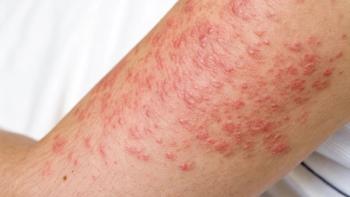
New data shows that barzolvolimab offers sustained complete responses and significantly improved quality of life for patients with chronic spontaneous urticaria, with a favorable safety profile.

Gary Falcetano, PA-C, AE-C, explains that proactively managing seasonal allergies can significantly decrease the overall inflammatory burden, thereby improving both physical symptoms and potentially mitigating neuroinflammation's impact on mental well-being.

Gary Falcetano, PA-C, AE-C, features insights on how unaddressed chronic allergy symptoms contribute to mental health burdens and the critical role of early immunoglobulin E trigger identification in managing both physical and psychological wellbeing.

Adults with peanut allergy experienced effective treatment with peanut oral immunotherapy but future studies are necessary to confirm and characterize safety profiles among various subgroups.

Gary Falcetano, PA-C, AE-C, explained that chronic allergic inflammation can significantly affect brain chemistry and mood regulation.

Gary Falcetano, PA-C, AE-C, explains that spring allergies can contribute to spring-onset seasonal affective disorder, emphasizing the need for more research collaboration and for clinicians to address both physical and mental health in patients with allergies.

A causal link between chronic spontaneous urticaria and gut microbiota, with metabolic pathways potentially acting as mediators, offer new avenues for research and clinical understanding.

A newly developed Naples Pediatric Food Allergy grading scale, incorporating clinical history and examination, shows promise in streamlining the diagnosis of food allergies in children, potentially reducing delays and health care burdens.
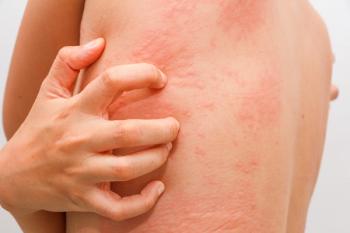
Patients with moderate to severe chronic spontaneous urticaria that were antihistamine-resistant to omalizumab experienced improvements with rilzabrutinib.
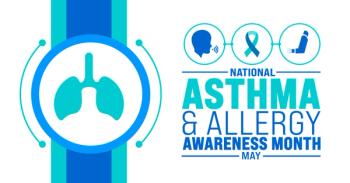
During National Asthma and Allergy Awareness Month, the high prevalence and costs of allergies and asthma in the US are evident, alongside disparities in treatment access and the potential impact of recent policy changes on environmental and public health efforts.

Jason Hawkes, MD, MS, provided an in-depth look at the potential role of dupilumab (Dupixent; Sanofi and Regeneron Pharmaceuticals) in the management of chronic spontaneous urticaria (CSU), a condition with limited therapeutic options over the past decade.
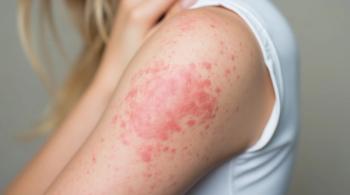
Urticaria is complicated to diagnose by its symptomatic overlap with other skin conditions and the frequent misclassification in literature of distinct pathologies like vasculitic urticaria and bullous pemphigus.

Marking the first approval in over a decade for this challenging condition, the FDA has approved dupilumab (Dupixent) to treat chronic spontaneous urticaria in patients 12 years and older whose hives and itching remain uncontrolled by antihistamines.
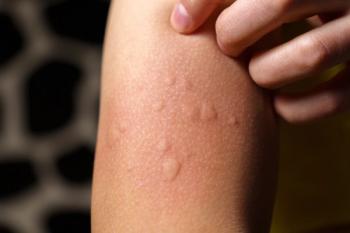
There have been new developments in treatments for chronic spontaneous urticaria, with several options showing complete response in patients, particularly among those who are difficult to treat.
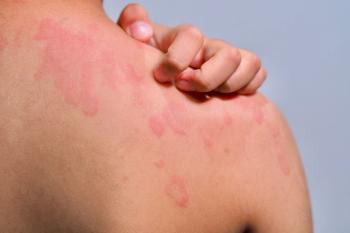
Patients with chronic spontaneous urticaria experienced a long delay in diagnosis, a substantial impact on their quality of life, and often received inadequate treatment, highlighting the need for better management and understanding of the condition.

The long-term safety and efficacy of treatments for allergy and inflammatory conditions was highlighted at the 2025 American Academy of Allergy, Asthma & Immunology/World Allergy Organization Joint Congress.
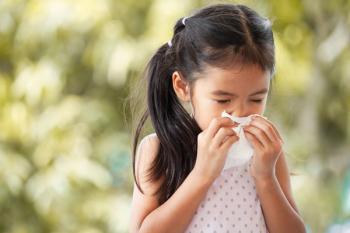
Genetics and environment both influence allergy risk, but environmental factors play a stronger role in the progression of allergic disease.

Further research is needed to clarify the cost-effectiveness, long-term adherence, and psychosocial impacts of oral immunotherapy.

In this discussion, panelists offer their final thoughts.

In this discussion, panelists explore the potential role of new Bruton tyrosine kinase inhibitors in the treatment landscape for chronic spontaneous urticaria (CSU), evaluating their stages of development and expected impact on treatment algorithms, while also considering future changes in coverage and payer strategies with the emergence of new therapies.

A panel of experts discuss the clinical trials of dupilumab, the resultant data, and the response of the FDA when approval was requested.

A panel of experts discuss the key updates needed in CSU guidelines, as they have not been updated since 2014.

Panelists discuss how 30%-50% of patients with chronic spontaneous urticaria remain symptomatic despite treatment, examining the impact of treatment burdens, the limitations of targeting the IgE pathway, and the need for new therapies addressing the IgG pathway.









